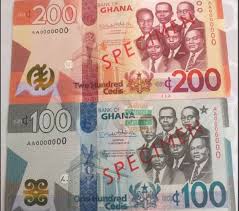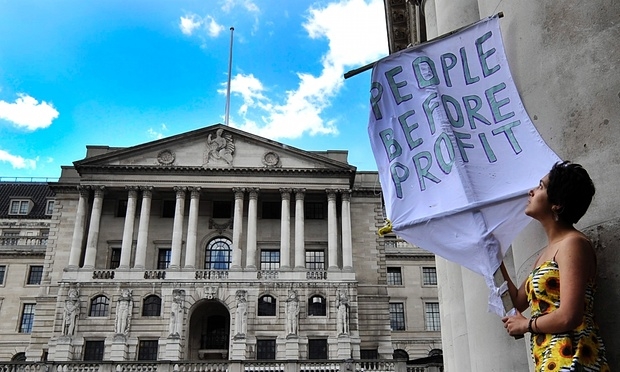Ghana Talks Business (GTB) looks at some significant economic and business developments in the highlights of 2019.
ECONOMIC OUTLOOK FOR 2019
Economic Growth
The real GDP growth of 6.98% is estimated to be achieved by the end of 2019. This is lower than the earlier target of 7.60% for the year. The 2020 Budget however projects a GDP growth rate of 6.79% in 2020. The non-oil sector is expected to drive the 2020 projection as the nation does not expect any new oil production opportunities.
Government Revenue
As at the end of 3rd quarter, the total government revenue and grants increased by approximately 12.57% from GH¢32.2 billion in 2018 to GH¢36.3 billion (provisional) in 2019. The revised target for the period was GH¢41.9 billion. The achieved figure is approximately 10.50 % of GDP compared to a revised target of approximately 12.10 % of GDP over the same period. The result represents a per annum (2018 – 2019) revenue growth of 9.20%. However, this falls short of the revised revenue target by 13.90%.
Based on the provisional fiscal outturn for the first nine months of the 2019, revised projection for the year end resulted in Total Revenue and Grants of GH¢54.6 billion (15.8% of GDP). This projection represents a 7.4 percent shortfall relative to the 2019 revised annual budget target of GH¢58.9 billion (17.0% of GDP).
Public Debt
The nominal public debt including the financial sector bailout costs at the end of September 2019 was GH¢208,565.18 million (60.55 % of GDP) comprising of external debt of GH¢107,166.78 million and domestic debt of GH¢101,398.40 million. The debt burden is
of concern to both local and international analysts. The external debt burden is considered a key pressure factor on the Cedi due to the servicing of these debts. This increases the country’s risk profile in the eyes of the international market.
The Cedi
The Cedi continued its depreciation in 2019. From January to date, the Cedi has depreciated by 13% (Bloomberg). It started off in January at GH¢4.87 to US$1 but stands at GH¢5.67 to US$1 as at 28 December 2019. It rose to the highest in mid-December to GH¢5.81. Analysts believe that the expenditure pattern during election year would pile more pressure on the economy that would weaken the fundamentals and thus lead to further depreciation.
Interest rate:
Policy rate has remained at 16% for almòst the entire year. However, lending rates by banks have not responded accordingly and have remained between 24% – 32% for both individuals and businesses (Bank of Ghana).
Inflation:
Government may achieve the targeted single-digit inflation. It currently stands at 8.2% for November 2019 from 7.7% for October. The year began with a rate of 9% and rose to the highest in April to 9.5%. Inflation basket was rebased to include more items. There are 307 items in the new basket compared with the 267 in the old basket. Food, alcoholic beverages, transportation and utilities have been known to contribute to the increasing trend. Inflation is expected to hit 8.3% by end of the fourth quarter (tradingeconomics.com)
GUTA Strikes
The Ghana Union of Traders Associations (GUTA) and Ghana Electrical Dealers Association (GEDA) have been protesting against foreigners engaged in retail. 2019 saw them take the fight to another level with locking of foreigners’ shops for longer periods of time. Their several petitions ended up with an engagement with the President who has assured the traders to deal with the situation within the framework of the law.
Financial sector
The financial sector cleansing continued from 2018. By 1st January banks who have not met the new capitalisation of GH¢ 400 million or had regulatory issues had licenses revoked. In 2019 alone seven banks were collapsed and added to Consolidated Bank Ghana (CBG). The savings and loans sector saw 15 of them collapsed together with 8 finance houses.
Further on 53 investment management companies had their licenses revoked.
| Type of Financial Institutions | No of Institutions Collapsed | No of institutions remaining after Industry Cleansing |
| Banks | 9 | 24* |
| Savings & Loans | 15 | 25 |
| Microfinance | 347 | 137 |
| Rural Banks | 147 | 144 |
| Micro Credit/ Lenders | 39 | 31 |
| Finance Houses | 8 | 11 |
Source: BOG Website
*The merger between First Atlantic Bank and GHL Bank is still ongoing. This could bring the number down to 23 banks.
**Investment houses are regulated by SEC
The National Insurance Commission (NIC) is expected to carry out a similar exercise in 2020 as it supervises the recapitalization of companies in the insurance business. 2019 highlights did not feature the few closed down companies as they remained isolated cases.
Ghana’s 20 yr bond
The 2019 highlight features the first 20-year bond released by Ghana. Ghana issued the first 20 year bond in the history of the country’s borrowings. The offer could only raise GH¢162.1 million ($30 million) of opposed to the targeted GH¢450 million. The relatively high yield of 20.2% in the face of ultra-low global yield was not enough to attract investors as seen in times past. The lower than expected performance was due to the increased country risk perceived by international investors.
Also Read: Ghana’s First 20-year Bond
Banking – Credit
Growth in private sector credit, however, moderated from 17.24 per cent in September 2018 to 12.62 per cent in September 2019. Though total loans grew, banks opted to lend more to public sector than the private sector. The revenue sources of the bank also grew towards the investment end rather than the loans end.
Also Read: Banks Making more Revenues from Investments
Banking – Non-Performing Loans (NPL)
The non-performing loan data depicts the risk of loss associated with loan facilities and loan clients. The report shows that NPLs in total has reduced from 21.3% in August 2018 to 17.8% in August 2019. Though the NPLs have generally reduced due to more recoveries and an intensified risk management the private sector increased their share of the NPL.
Stock Market Slump
Ghana Stock Exchange (GSE) has slumped in 2019. The composite year-to-date returns on the exchange as at 27 December is -12.35%. This is the overall performance. However there were gainers and losers. The biggest loser is SIC Insurance Company that lost 57.89% of their value within the year. The biggest gainer is Trust Bank in Gambia that gained 73.91% on their share value to date (doobia.com)

New Notes & Coins Introduced
Bank of Ghana introduced higher denomination notes of GH¢100, GH¢200 and GH¢2 coins. There is mixed sentiments of the public on the issuance of the new notes. There is however a higher slant towards views that the introduction of the new notes was not necessary. The central bank intends to limit circulation of these higher denominated notes. This is a significant highlight for 2019.
Nigerians border closure
Nigeria closed its borders to the western Benin side to control influx of foreign rice and other products into the Nigerian market. This was met with rebuttals from neighbouring West African countries. Nigeria has began counting its gains and has not budged to the pressures mounted by the neighbours. The borders remain closed. It remains uncertain when the borders would be opened. This is featured in the 2019 highlights due to its impact on the local trade economy.
Ghana Commodity Exchange (GCX) partners with ARP Apex to provide financing to smallholder farmers
Agric financing received a boost in 2019 when GCX and APEX bank partnered to make financing available to small holder farmers. This is to utilize an electronic warehousing receipt system of the exchange. This was part of the one year anniversary of the GCX
Maiden Cocoa Awards
In the midst of many industry awards, the maiden Ghana Cocoa Awards was held to recognize the hard work of industry persons and organisations. Ex-president Mr. John Agyekum Kuffour was presented with the Honorary Cocoa Lifetime Achievement, while Mr. Joseph Boahen Aidoo, the current CEO of Cocobod, won the prestigious Tetteh Quarshie Cocoa Personality of the Year Award
Tax Issues
Luxury Vehicle Tax was scrapped while Communication Services Tax (CST) was increased from 6% to 9%. The Finance Minister has however promised a comprehensive review of Ghana’s tax system in 2020. Expected to be reviewed are the numerous exemptions that currently exists in Ghana’s tax regime. The Charities Bill is also being developed which is expected to guide how religious bodies, notably churches, will be taxed.
Also read: Taxation of Churches
Watch out for the 2nd Part, to include a profile of Public Leaders who lost their positions in 2019










